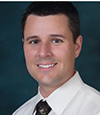May/June 2020
Pandemic Shakes the Profession
BY EVA KAPLAN-LEISERSON
Going about our daily lives just a few months ago, we had no idea of the profound changes in store for us. Then, almost overnight, life turned topsy-turvy—throwing every aspect into tumult like loose items in an earthquake. The pandemic, plus a countrywide shut down, an economy on hold. Those lucky enough to avoid the health crisis find it hard to escape these aftershocks.
NSPE is among those, as is its certification division NICET. Engineering technician certification exams are halted until further notice. So are PE licensing exams. MATHCOUNTS canceled state competitions after March 12, and its national competition. And NSPE’s state societies have also canceled or postponed events.
Meanwhile, company leaders and employees alike worry about the survival of their firms. They’re doing so while figuring out how to perform work remotely and often juggling the education of children home from school.
It’s a strange and scary time, but PEs and their organizations are meeting the challenges with courage, compassion, and innovation. No one knows what the future holds, or how things may have further changed by the time this reaches you. But professional engineers will be among those helping to create that future—as always, prioritizing the public health, safety, and welfare.
Information, Education, and Networking
NSPE and state societies have been playing an important role in informing members and providing resources. On April 2, the Society hosted a free webinar highlighting actions taken at the federal and state level that affect licensure and small businesses. NSPE’s government relations team has been hard at work identifying Covid-19 executive orders and legislation. Online, real-time updates track support for small businesses and changes to licensure requirements.
State societies have also been making sure members have the information they need. For instance, the South Carolina Society of Professional Engineers has been sending out a weekly Covid-19 update to members, along with tweets and Facebook updates. And the Maryland Society of Professional Engineers posted a webpage of Covid-19 industry resources.
While a number of states have extended license renewal deadlines, professional engineers still need to earn PDHs. NSPE has been ramping up the number of its live webinars and continues to offer 15 Free PDHs available on-demand to members each year. State societies have been promoting these, as well as additional state offerings.
 The New Jersey Society of Professional Engineers turned a six-credit in-person seminar into a full-day live webinar to be presented on Zoom. Three different lecture sessions, including one on ethics, will offer PDHs for license renewal (with extended deadline).
The New Jersey Society of Professional Engineers turned a six-credit in-person seminar into a full-day live webinar to be presented on Zoom. Three different lecture sessions, including one on ethics, will offer PDHs for license renewal (with extended deadline).
Some events couldn’t be retooled, though. The West Virginia society is a cosponsor of the West Virginia Construction and Design Expo, which normally attracts more than 400 exhibitors and 5,000 participants. When the convention center closed down, the March event had to be canceled. The organization took a significant financial hit, says WVSPE Executive Director Michael Haid.
 The South Dakota Engineering Society is hoping to postpone—not cancel—its 60th Annual Spring Conference, until the fall. The event was significant, explains Executive Director Nancy Hoines, with speakers including US Representative Dusty Johnson and NSPE national leaders. The event is always the highlight of the year, she says, with about half of the SDES membership (about 250 people) attending. It’s also an annual fundraiser for a local chapter, “so a tough deal there as well.”
The South Dakota Engineering Society is hoping to postpone—not cancel—its 60th Annual Spring Conference, until the fall. The event was significant, explains Executive Director Nancy Hoines, with speakers including US Representative Dusty Johnson and NSPE national leaders. The event is always the highlight of the year, she says, with about half of the SDES membership (about 250 people) attending. It’s also an annual fundraiser for a local chapter, “so a tough deal there as well.”
Hoines says, “We realize that September may come and we may have to postpone again, but…we still want to hold the conference.” She adds, “It’s just a matter of when.”
Advocacy Efforts
As part of tracking legislation and executive orders affecting members, NSPE government relations staffers are reviewing non-essential business closure executive orders to determine how engineering is defined and if and where work can continue. The Society has been putting together a document to share with those details.
The issue of whether engineering is considered an essential service is playing out in the states as well. The South Carolina society started a social media campaign, #weareessentialservices, joined by the American Council of Engineering Companies of South Carolina and the South Carolina Society of Professional Land Surveyors. SCSPE also sent a letter to the governor, urging him to consider design and construction as essential.
The society didn’t take these actions lightly, explains Executive Director Adam Jones. The executive committee thought hard about whether the designation was best for the health, safety, and welfare of the public. In the end, committee members decided it was.
As SCSPE leaders wrote to Governor Henry McMaster, “Many of us are able to work remotely, but some of us need to be in the field, and when this is the case, we will adhere to social distancing. Professional engineers play an important role in inspecting and improving critical infrastructure…so important to our daily lives.” The advocacy paid off. When the governor issued a stay-at-home order on April 6, engineers and engineering services were deemed essential.
The Pennsylvania Society of Professional Engineers also took action, along with the American Council of Engineering Companies of Pennsylvania and the American Institute of Architects Pennsylvania, when engineering and architecture were not deemed essential services in the state. The organizations’ March letter to Governor Tom Wolf emphasized the importance of design and renovations of healthcare facilities, food distribution centers, and transportation centers during the pandemic.
According to PSPE Executive Director Jennifer Summers, engineering services did not receive a blanket exemption, but individual firms that applied for exemptions (“if they were in the support chain for a life-sustaining business”) were told that no exemption was required. In other words, they were already exempt. Summers said in mid-April that the state’s Department of Community and Economic Development received more than 30,000 appeals and requests for clarification.
Getting Work Done
Like their organizations, individual PEs have had to adjust to a new reality. NSPE members have put the ingenuity of professional engineers to bear on adapting their companies and work lives.
 In Memphis, prior to the stay-at-home order, Larkin Myers, P.E., had an idea. The Tioga Environmental Consultants president divided her 12-person staff into two teams with equivalent skills, each of which worked on alternating days. That way, only half of the staff would be affected if an employee got sick and coworkers needed to be quarantined. The company followed that plan for a week, until the mayor issued the stay-at-home order.
In Memphis, prior to the stay-at-home order, Larkin Myers, P.E., had an idea. The Tioga Environmental Consultants president divided her 12-person staff into two teams with equivalent skills, each of which worked on alternating days. That way, only half of the staff would be affected if an employee got sick and coworkers needed to be quarantined. The company followed that plan for a week, until the mayor issued the stay-at-home order.
 LARKIN MYERS’ HOME OFFICE
LARKIN MYERS’ HOME OFFICEMyers says she was “in shock” the first week of remote work, but then she and others adjusted to keep work moving. Even though the company’s functions could be considered essential, the Tioga president says, management didn’t want to put employees they considered extended family at risk if it wasn’t necessary. “We said, ‘If you can do every single thing from home, do that,’” she says. For in-person tasks such as groundwater sampling, a single employee can perform work and retain social distancing.
 In some cases, local executive orders have not been easily decipherable for engineering firms. Rizza Engineering Inc. principal Michael Rizza, P.E., notes that the California executive order is “not very clear for a company like mine that provides professional services.” However, the “essential services” question is almost moot, he explains, because the electrical engineering and lighting design firm has been able to put site visits on hold for the time being.
In some cases, local executive orders have not been easily decipherable for engineering firms. Rizza Engineering Inc. principal Michael Rizza, P.E., notes that the California executive order is “not very clear for a company like mine that provides professional services.” However, the “essential services” question is almost moot, he explains, because the electrical engineering and lighting design firm has been able to put site visits on hold for the time being.
For Rizza’s firm, technology has proven critical to keeping projects moving. A mobile technology culture and a strong VPN have helped the company meet its deadlines, he says.
 IT investment (including advancing some planned improvements) has also been crucial for full-service firm Freese and Nichols Inc., says Oklahoma Division Manager and Vice President Tricia Hatley, P.E., F.NSPE. While following local government orders, the company transitioned its more than 900 employees to working from home gradually to allow time to add bandwidth, virtual machines, and a second VPN, the NSPE president-elect explains. Although engineering is considered an essential business in all states where Freese and Nichols operates, Hatley says, “we decided that in order to best protect public health as well as our employees and their families, we need to be responsible and utilize the technology we have in place to keep our staff in their homes as much as is reasonably possible.”
IT investment (including advancing some planned improvements) has also been crucial for full-service firm Freese and Nichols Inc., says Oklahoma Division Manager and Vice President Tricia Hatley, P.E., F.NSPE. While following local government orders, the company transitioned its more than 900 employees to working from home gradually to allow time to add bandwidth, virtual machines, and a second VPN, the NSPE president-elect explains. Although engineering is considered an essential business in all states where Freese and Nichols operates, Hatley says, “we decided that in order to best protect public health as well as our employees and their families, we need to be responsible and utilize the technology we have in place to keep our staff in their homes as much as is reasonably possible.”
 TRICIA HATLEY’S “CO-WORKERS”
TRICIA HATLEY’S “CO-WORKERS”She reports that productivity has been high in her division. “We are benefiting from not having as many distractions, with fewer meetings and travel.”
In Philadelphia, staff at multidisciplinary A/E firm Maida Engineering Inc. sometimes have to go out to perform essential services on essential facilities, says President Joseph Maida, P.E. He calls this the company’s biggest challenge. But he points to others who put themselves in harm’s way regularly.
“When doing this,” says Maida, “I and my employees will remember that there are many other people who do this every day and how lucky we are that we only need to do this occasionally.” He adds, “Knowing what frontline workers have sacrificed and are sacrificing should make all engineers want to work harder and to find ways that we as engineers, with specialized training, can assist them in fighting in their cause to defeat Covid-19.”
Values-Driven Approaches
In its company culture and values, Tioga Environmental Consultants prioritizes taking care of team members. In addition to company Zoom meetings, which allow staff to “see each other’s faces and just make sure everyone is okay,” one of the company partners has been calling team members individually to check on them, Myers explains.
Company values are also playing out in decisions related to hourly employees. Tioga is paying them for 40 hours a week even if they can’t work full-time from home. “The decision is easy to make,” says Myers, “because we know those people personally.” The company has adjusted its overall expectations of staff as well. The ownership team has agreed: “If we can get 70% out of everybody, that would be amazing.”
Rizza Engineering has also adjusted its expectations, understanding that employees aren’t going to be operating as efficiently at home with distractions. Michael Rizza lets staff know he empathizes; he’s running the company from a card table in his bedroom with his wife and three children at the other end of the house. “It gets kind of loud,” he says.
Since its launch in 2011, Rizza says, the company has encouraged flexibility and work-life balance for its staff. Employees could take time off for kids’ baseball games and then finish work after hours. That flexibility “has proven highly beneficial” in the time of coronavirus. To business owners who wonder if employees are really working their 40 hours, Rizza advises, “I’ve always taken the approach—if I have to have those thoughts, maybe I hired the wrong employee.”
Financial Adjustments
As the crisis drags on, companies are forced to make tough choices—and the companies where NSPE members work are no exception. “We’re pretty fiscally conservative,” says Myers. “We felt pretty good going in but not knowing if it’s going to be two months or six months, it’s hard to make decisions.” Some of the company’s services have been less needed—such as environmental site assessments because people aren’t buying property. Tioga is looking at loans offered through the federal CARES Act, and Myers was glad that the legislation included payroll assistance.
 In Texas, multidisciplinary firm Baird, Hampton, & Brown has had to enact furloughs and layoffs, according to president Konstantine Bakintas, P.E. The company has tried historically to maintain about 50% public and 50% private clients. The government sector projects are continuing, for the most part, while there’s been “a little bit of an overreaction perhaps in the private sector,” the TSPE executive vice president says.
In Texas, multidisciplinary firm Baird, Hampton, & Brown has had to enact furloughs and layoffs, according to president Konstantine Bakintas, P.E. The company has tried historically to maintain about 50% public and 50% private clients. The government sector projects are continuing, for the most part, while there’s been “a little bit of an overreaction perhaps in the private sector,” the TSPE executive vice president says.
The furloughs and layoffs were “frustrating,” Bakintas says, but calls the measures “part of business—the responsible thing to do.” Trying to gather information under ever-changing conditions and make decisions on a timely basis, in addition to still trying to serve clients and build projects, has been challenging, he explains. But one key strategy has been to stay in frequent contact with clients, which helps the firm focus on projects that will continue to generate income.
 Michael Aitken, P.E., F.NSPE, vice president of Colorado-based MEA Consulting Engineers Inc., has seen a major slowdown in work. Restaurant design is a large part of the company’s business, and restaurant clients have put projects on hold or cancelled them completely, the NSPE past president says. The company is now
reevaluating its business model to determine how to rebalance its operations. Aitken has also been contacting building owner and management companies to discuss capital improvements while tenants are working from home. “Even if the current business model isn’t a success in the current environment,” he says, “I will refocus, reevaluate, and make our firm successful beyond this pandemic.”
Michael Aitken, P.E., F.NSPE, vice president of Colorado-based MEA Consulting Engineers Inc., has seen a major slowdown in work. Restaurant design is a large part of the company’s business, and restaurant clients have put projects on hold or cancelled them completely, the NSPE past president says. The company is now
reevaluating its business model to determine how to rebalance its operations. Aitken has also been contacting building owner and management companies to discuss capital improvements while tenants are working from home. “Even if the current business model isn’t a success in the current environment,” he says, “I will refocus, reevaluate, and make our firm successful beyond this pandemic.”
Maida Engineering has also taken financial hits. The company has reduced work weeks to 32 hours and pay 20%, says Joseph Maida, and changed all unbillable hours to vacation hours. Maida is also offering free service to clients and classifying those hours as billable. This will “give the employee a sense of purpose,” says the company president, “which is an essential to retaining employees.” The company is applying for a Paycheck Protection Program loan through the federal CARES Act to maintain personnel.
The Mental Battle
From finances to keeping staff connected and motivated, challenges abound. The mental load is heavy.
Videoconferencing has been helping at Rizza Engineering. At the end of the day, Michael Rizza says, whether “you’re still in your PJs or your hair is done or you’re shaved or not, get on a Zoom call and do a face-to-face. Say ‘Hi, how are you doing?’”
Hatley explains that in addition to regular virtual meetings, virtual happy hours and game nights are fun and sometimes even more engaging than in-person events, as people feel more comfortable in their home environments.
And Donna Settle, P.E., a senior risk control consultant at insurance, risk management, and business consulting services firm Gallagher, posted on NSPE’s Communities about how her company is keeping up morale. A weekly challenge, with ideas from team members, asks people to submit photos in themes, like “New Co-Workers” (pets and kids) or “Throwback Thursday.”
Still, staying positive can be a challenge, Hatley says, with no transition time from home to work to back home again. “I’ve had to find people to connect with,” she says, “with whom I can have honest conversations about my fears and frustrations.”
People with children have the added difficulty of balancing them with their work, as Myers points out. “But we’re also used to that struggle.” The PE juggles her workday with kids who are five- and seven-years-old. “My day is kind of structured around keeping them moving,” she says. “Thank goodness for technology.”
But people without kids might have a bigger challenge, she quips, of making sure they get work done “when really I just want to sit on the couch and watch Netflix.” She continues: “It’s what we all really would love to do—eat nachos and watch TV.”
Bakintas emphasizes the community aspect of this shared experience. No one is alone, he says. “Everyone is experiencing the same thing. I fully believe we will get through this as an industry and will get back to business.”
Access information and resources at www.nspe.org/COVID-19 and www.nicet.org/covid-19.
Donate Personal Protective Equipment
Engineers have been stepping up to donate their extra or unused PPE to healthcare workers, and putting their skills to use to make items.
Have items to donate? Want to help in other ways? Go to https://getusppe.org.


